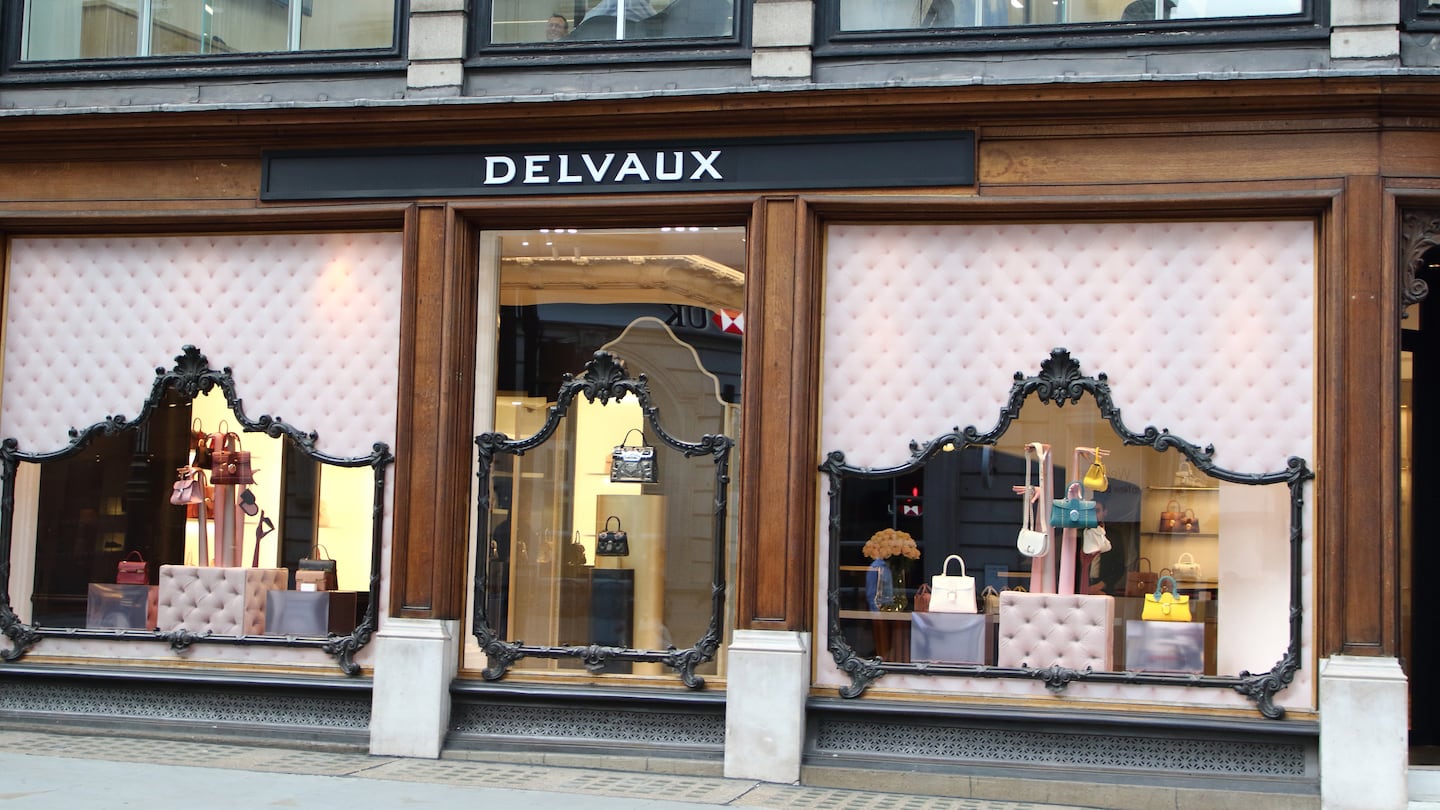
The Business of Fashion
Agenda-setting intelligence, analysis and advice for the global fashion community.

Agenda-setting intelligence, analysis and advice for the global fashion community.

At first glance, Richemont’s acquisition of Delvaux, a 200-year-old brand best known for its high-end, satchel-style handbags, is a head-scratcher.
Investors have been waiting for the Swiss watches-and-jewellery giant to make a move to either shore up its soft luxury portfolio or exit the category entirely. But Delvaux, a once-sleepy brand that has opened dozens of stores mostly in Asia in its decade under the Fung family’s ownership, isn’t big enough to move the needle, analysts say. Terms of the deal were not disclosed, but in an April Bloomberg report, advisers to the sellers valued Delvaux at between $500 million and $600 million.
Richemont isn’t pretending its latest acquisition is transformative. The company said in its announcement Thursday that the deal would have “no material financial impact” in its current fiscal year (Richemont reported revenue of €13.1 billion in the year ending March 21 — down from €14.2 in the previous year). Rather, Delvaux is a long-term play: it provides an opportunity for Richemont to scale and cultivate a promising brand with the hope that one day, it will be a major contender in the luxury soft goods market, according to a source close to Richemont.
Delvaux is on the upswing. The Fungs jumpstarted what had been a sleepy Belgian brand under its portfolio company, First Heritage Brands, tapping LVMH alum Jean-Luc Loubier as chief executive in 2011. Under Loubier, Delvaux focused on Asian consumers, opening dozens of stores in China, South Korea and Japan, in addition to parts of Northern Europe. In a 2019 interview with BoF, Loubier said Delvaux’s revenue had multiplied by 10 times since the 2011 acquisition. Today, it has 50 stores around the world.
ADVERTISEMENT
Still, Richemont desperately needs assets that can help it keep up with Kering and LVMH, and Delvaux is not that brand, said Luca Solca, luxury analyst at Bernstein. Richemont owns many of the world’s biggest hard luxury brands, including Cartier, Piaget and Van Cleef & Arpels, as well as the e-commerce heavyweight Yoox Net-a-Porter Group. But it now faces tougher competition in its core market from LVMH, which completed its acquisition of Tiffany & Co. in January. Meanwhile, Richemont lacks the ability to compete in the fashion and handbags space; its labels, including Chloé and Alaïa, are dwarfed by Kering’s Gucci or LVMH’s Louis Vuitton and Dior.
“Something like Delvaux [doesn’t] address the issue of Richemont being subpar in soft luxury,” Solca added. “I don’t think this acquisition changes the picture in any material way.”
Richemont also may be taking the reins at Delvaux at its peak, Solca said. The previous owners were able to grow the brand, but scaling it into a $1 billion giant is a different endeavour. Such growth requires attracting thousands of new customers in new markets and significant spending on marketing.
“Delvaux had been more relevant a few years ago and then it fell off a little bit,” Solca said. “The big question mark is: does Richemont have the skills required to [pull it off], knowing that brand relaunches are delicate and unpredictable affairs?”
If anything, Richemont would be better off pursuing a merger with Kering, Solca added, or divesting from soft luxury assets completely to focus on jewellery and watches. Earlier this year, it was reported that Kering had approached Richemont about a potential merger, but Johann Rupert, Richemont’s chairman, has publicly stated that he turned down the offer.
Still, Richemont is seeing relief from the pandemic-related contraction. In its most recent financial quarter, sales grew by 30 percent, underscored by a triple-digit online boost. Its joint venture with Alibaba and Farfetch last year in a bid to dominate luxury e-commerce in China was welcome news for investors, marking an ambitious and strategic move. And with former Givenchy chief executive Philippe Fortunato as the head of fashion and accessories, Richemont has recruited a number of noteworthy talents since late 2020, including Gabriela Hearst as creative director of Chloé and Pieter Mulier to be creative director of Alaïa.
It remains to be seen how the market will respond to these new appointments. Hearst just showed her first collection for Chloé in March and Mulier’s debut at Alaïa comes next week for the Autumn-Winter 2021 haute couture season in Paris.
Related Articles:
ADVERTISEMENT
Richemont Needs a Transformational Move
Richemont Shares Rise After Report It Rejected Kering’s Approach
The group’s flagship Prada brand grew more slowly but remained resilient in the face of a sector-wide slowdown, with retail sales up 7 percent.
The guidance was issued as the French group released first-quarter sales that confirmed forecasts for a slowdown. Weak demand in China and poor performance at flagship Gucci are weighing on the group.
Consumers face less, not more, choice if handbag brands can't scale up to compete with LVMH, argues Andrea Felsted.
As the French luxury group attempts to get back on track, investors, former insiders and industry observers say the group needs a far more drastic overhaul than it has planned, reports Bloomberg.